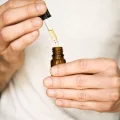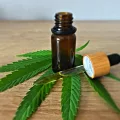Addiction is a complex issue that affects millions of individuals worldwide.
While traditional treatments such as cognitive-behavioral therapy and medication-assisted therapy have shown some success, many people still struggle to overcome addiction.
Recently, CBD has emerged as a potential treatment option, with advocates claiming that it can help reduce cravings and alleviate withdrawal symptoms.
In this article, we’ll explore the current research on CBD and addiction and examine whether it can be an effective tool to fight addiction.
Jump to Section
Can CBD Be an Effective Tool to Fight Addiction?
Cannabidiol, or CBD, is a non-psychoactive compound found in the cannabis plant. Unlike tetrahydrocannabinol (THC), the primary psychoactive component in cannabis, CBD does not produce a “high” sensation.
Instead, CBD is believed to interact with the body’s endocannabinoid system (ECS), a complex network of receptors and neurotransmitters that regulates a wide range of physiological functions, including mood, sleep, appetite, and pain sensation.
One of the areas where CBD has shown potential is addiction.
Multiple studies have suggested that CBD may be useful in reducing withdrawal symptoms and cravings associated with substance abuse.
For example, a 2019 systematic review found that CBD may have therapeutic potential for treating opioid addiction, as it can help reduce withdrawal symptoms and improve mood.
Another study published in the Journal of Clinical Psychology in 2018 found that CBD may help reduce cue-induced cravings in individuals with heroin use disorder.
However, it’s important to note that the research on CBD and addiction is still in its early stages, and more studies are needed to determine its safety and efficacy.
Moreover, the use of CBD for addiction treatment is not without risks.
For example, CBD can interact with other medications, including those commonly used to treat addiction, such as buprenorphine and methadone.
Additionally, some people may experience side effects from CBD, such as dry mouth, dizziness, and changes in appetite or mood.
| Potential Benefits of CBD in Addiction Treatment | Risks and Limitations |
|---|---|
| Reduces withdrawal symptoms | Interactions with other medications (e.g., buprenorphine, methadone) |
| Improves mood | Potential side effects (e.g., dry mouth, dizziness, changes in appetite or mood) |
| Reduces cue-induced cravings | Limited research and need for more studies |
| Non-psychoactive (no “high” sensation) | Uncertain long-term effects and safety |
| Natural alternative to some pharmaceuticals | Unregulated market and variable product quality |
Understanding the Potential Benefits and Risks of Using CBD for Addiction Treatment
While the research on CBD and addiction is limited, there are several potential benefits and risks to consider when using CBD for addiction treatment.
Potential Benefits:
- Reducing Cravings: One of the primary benefits of CBD for addiction treatment is its potential to reduce cravings. CBD may help regulate the brain’s reward system, which is responsible for the feelings of pleasure and motivation associated with drug use. By reducing the intensity of these cravings, CBD may make it easier for individuals to overcome addiction.
- Alleviating Withdrawal Symptoms: Another potential benefit of CBD for addiction treatment is its ability to alleviate withdrawal symptoms. Withdrawal symptoms can be uncomfortable and often lead to relapse. CBD may help reduce the severity of these symptoms, making it easier for individuals to complete detoxification.
- Non-Addictive: Unlike many traditional addiction treatments, such as opioids, benzodiazepines, and stimulants, CBD is not addictive. This means that individuals can use CBD without the risk of developing a new addiction.
Potential Risks:
- Interaction with Other Medications: CBD can interact with other medications, including those commonly used to treat addiction, such as buprenorphine and methadone. This can lead to unintended side effects, such as increased sedation or respiratory depression.
- Lack of Standardization: The production and labeling of CBD products are not regulated by the FDA, which means that there is no guarantee of their quality or safety. This can make it difficult for individuals to know what they are getting and how much to take.
- Side Effects: While CBD is generally considered safe, some people may experience side effects, such as dry mouth, dizziness, and changes in appetite or mood. These side effects are typically mild and go away on their own, but they can be concerning for some individuals.
While the research on CBD and addiction is still in its early stages, the preliminary findings are promising.
CBD may help reduce cravings and alleviate withdrawal symptoms associated with substance abuse.
However, it’s important to note that CBD is not a cure-all for addiction and should be used in conjunction with other treatments, such as therapy and medication-assisted therapy.
Additionally, CBD is not without risks, and individuals considering using it for addiction treatment should speak with their healthcare provider and exercise caution when selecting products.
As more research is conducted, we can gain a better understanding of the potential benefits and risks of CBD for addiction treatment.
FAQ
- What is CBD?
Cannabidiol (CBD) is a non-psychoactive compound found in the cannabis plant.
It does not produce a “high” like THC (tetrahydrocannabinol) but interacts with the body’s endocannabinoid system, influencing mood, sleep, appetite, and pain sensation.
- Can CBD help with addiction treatment?
Research on CBD and addiction is still in its early stages.
However, some studies suggest that CBD may be useful in reducing withdrawal symptoms and cravings associated with substance abuse.
It is important to note that more research is needed to determine its safety and efficacy.
- What are the potential benefits of using CBD for addiction treatment?
Some potential benefits of CBD for addiction treatment include reducing cravings, alleviating withdrawal symptoms, and being non-addictive.
- What are the potential risks of using CBD for addiction treatment?
Potential risks of using CBD for addiction treatment include interaction with other medications, lack of standardization in the production and labeling of CBD products, and possible side effects such as dry mouth, dizziness, and changes in appetite or mood.
- Should I use CBD as a standalone treatment for addiction?
CBD should not be used as a standalone treatment for addiction.
It is best to use CBD in conjunction with other treatments, such as therapy and medication-assisted therapy, and under the guidance of a healthcare provider.
- Are there any side effects associated with using CBD?
Some people may experience side effects from CBD, such as dry mouth, dizziness, and changes in appetite or mood.
These side effects are typically mild and go away on their own, but they can be concerning for some individuals.
- How do I choose a safe and effective CBD product for addiction treatment?
As the production and labeling of CBD products are not regulated by the FDA, it is important to exercise caution when selecting products.
Look for reputable brands that provide third-party lab testing and certificates of analysis to ensure the quality and safety of their products.
- Can I use CBD if I am on medication-assisted therapy for addiction?
CBD can interact with other medications, including those commonly used to treat addiction, such as buprenorphine and methadone.
It is crucial to speak with your healthcare provider before using CBD in conjunction with other addiction treatments.
I am a CBD enthusiast and creator of DJ Hemp who has made it my mission to enlighten the world about the cannabis industry through thought-provoking literary works.
I have successfully fostered an open-minded, inquisitive community that is eager to learn more about the potential benefits of CBD.
Contact me at [email protected] for assistance.





